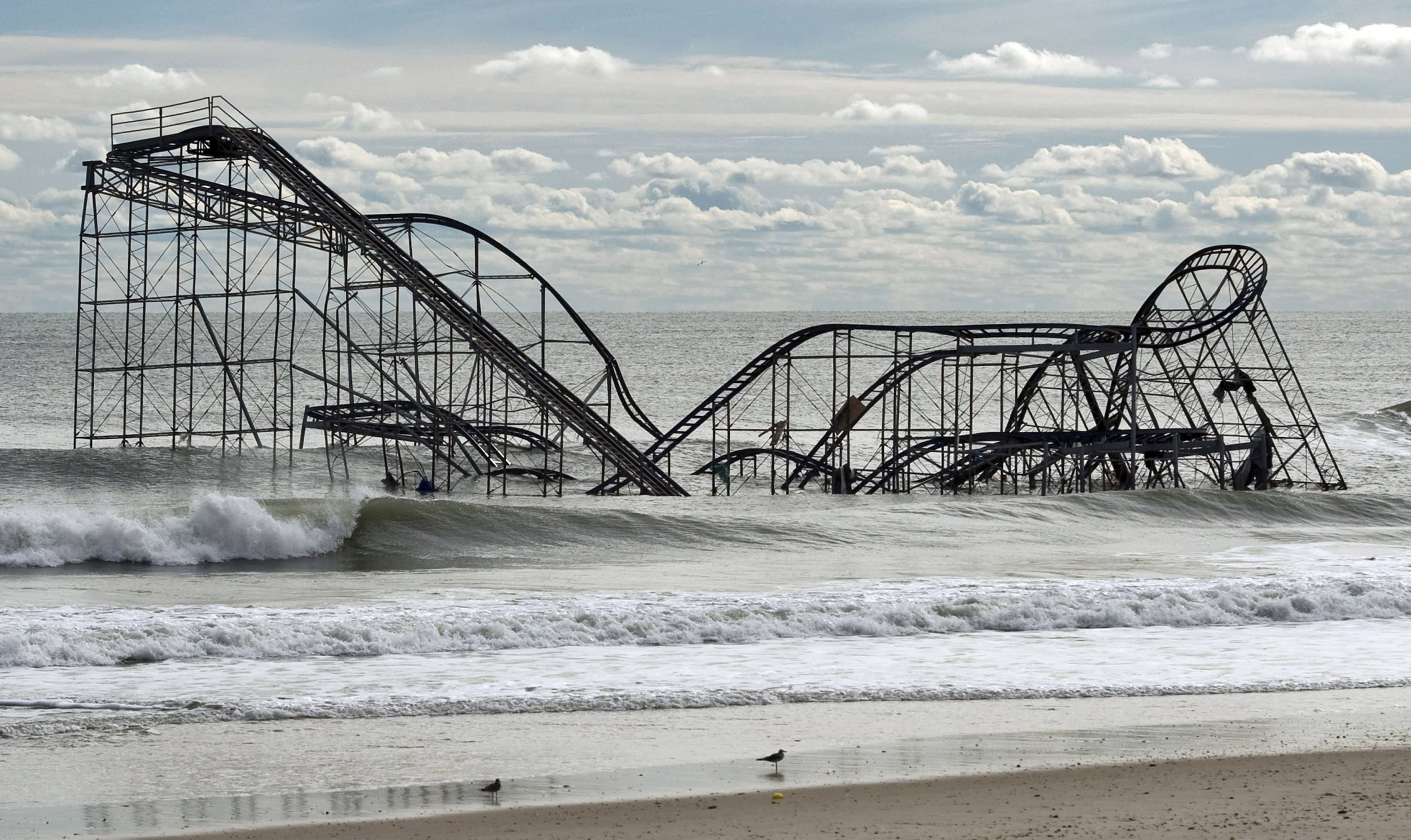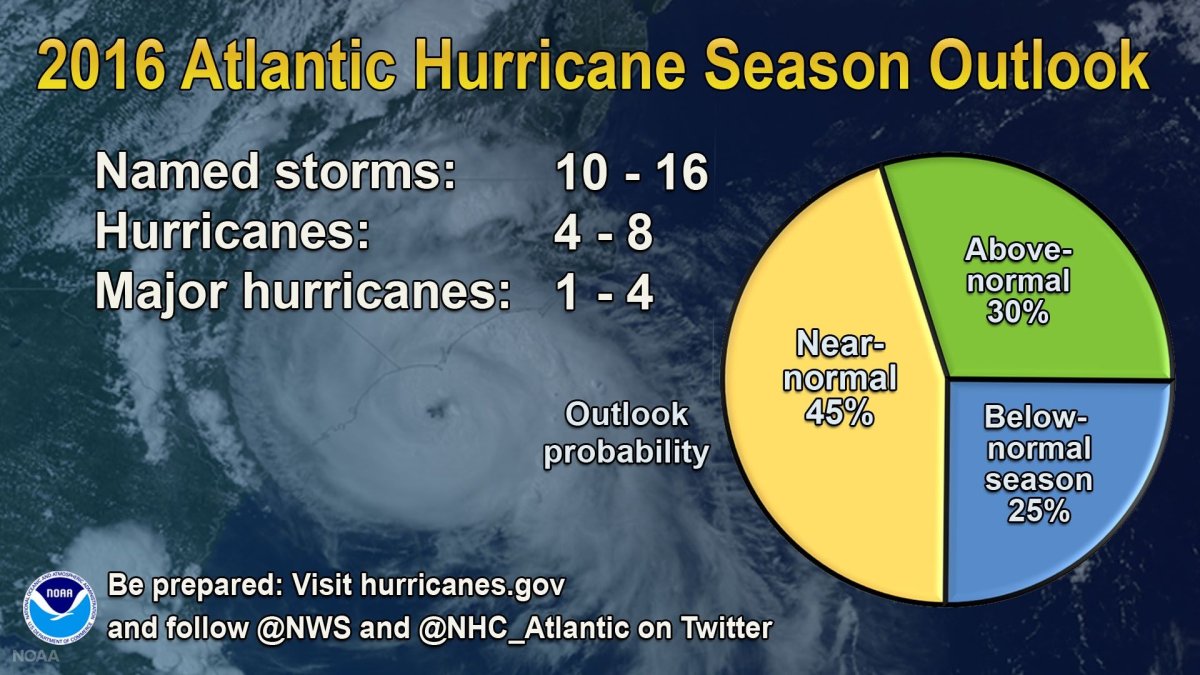
Hurricane season runs from the beginning of June through the end of November, and the National Ocean and Atmospheric Association (NOAA) has announced that this year's batch of water borne cyclones in the Atlantic Ocean is "most likely" to be "near-normal." The uncertain language is due to the fact that officials have found this year's storm season to be particularly difficult to predict.
"This is a more challenging hurricane season outlook than most because it's difficult to determine whether there will be reinforcing or competing climate influences on tropical storm development," says Gerry Bell of the NOAA's Climate Prediction Center. "However, a near-normal prediction for this season suggests we could see more hurricane activity than we've seen in the last three years, which were below normal."
And what is "normal?" NOAA says there is a 70 percent chance we'll see 10 to 16 "named storms," or storms with winds above 39 mph. Of these, four to eight could becomes hurricanes (winds above 74 mph), and one to four could become "major hurricanes" (winds above 111 mph). These projections include Hurricane Alex, which formed in the mid-Atlantic in January.

There are two main factors contributing to the high degree of uncertainty in predicting this season's activity. One is doubt as to whether the high activity era of Atlantic hurricanes that began in 1995 has ended. The past three seasons have seen below average activity. This drop in storms could be temporary, or it could signal the beginning of new era of low activity, which could last 25 to 40 years.
The other complicating factor is that the dissipation of El Niño has led experts to forecast a 70 percent chance of La Niña rearing her head this year. This would mean more hurricane activity during peak months over the summer. Unfortunately, there is no way to tell just how strong La Nina would be, should it be present this season.
So, in other words, we maybe, kind of, might be in for a somewhat average (or maybe not) season of hurricanes this summer. Prepare accordingly.
Uncommon Knowledge
Newsweek is committed to challenging conventional wisdom and finding connections in the search for common ground.
Newsweek is committed to challenging conventional wisdom and finding connections in the search for common ground.
About the writer
Ryan Bort is a staff writer covering culture for Newsweek. Previously, he was a freelance writer and editor, and his ... Read more
To read how Newsweek uses AI as a newsroom tool, Click here.








